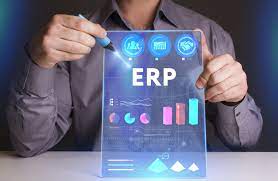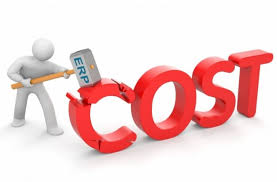Deploying ERP software is a complex process, requiring investment in time, human resources and finance. Therefore, understanding the leading factors affecting ERP implementation costs is extremely important in the process of planning ERP implementation in businesses. However, not everyone can clearly understand these factors.
Therefore, this article will delve into the analysis of the leading factors affecting the cost of ERP implementation, from the complexity of the job, the number of users to the scale and level of customization of the system. system. Hopefully this article will help businesses summarize and make the best decisions for implementing their ERP system.
1. Scale of the business
The size of the business is an important factor when implementing an ERP system. Larger businesses tend to have more complex processes, higher data volumes, and larger numbers of users. The scalability and capacity of the ERP system must match the scale of the business to effectively handle the volume of data and support the number of users.
2. Scope and functions of the ERP system

The scope and functionality of the ERP system should be carefully considered during implementation. The system must include all the essential functions required by the business, such as finance, human resources, supply chain management, inventory control, and customer relationship management. A comprehensive assessment of business processes and requirements is necessary to ensure that the selected ERP system meets the needs of the organization.
3. Require customization and integration
Each business may have specific customization and integration requirements based on their industry, unique processes, or existing software infrastructure. The ERP system must be able to accommodate these customizations and integrate seamlessly with other systems. Evaluating the customization and integration capabilities of the ERP system is essential to meet the specific needs of the business.
4. Number of users

The number of users accessing an ERP system affects licensing models, infrastructure requirements, and user training needs. Understanding the user base is critical to determining the scalability and performance requirements of an ERP system. It also helps estimate the resources needed for training and support.
5. Deployment method
Choosing the right ERP implementation method is very important for a successful ERP implementation. Options include on-premises, cloud-based, or hybrid deployments. Factors such as infrastructure capabilities, data security requirements, scalability, and budget influence the decision on deployment method. Cloud-based deployments offer flexibility and cost savings, while on-premise deployments offer more control and customization.
6.Costs

The costs associated with licensing ERP software are an important consideration. ERP systems often involve upfront license fees, ongoing maintenance fees, and potential costs for additional modules or user licenses. Organizations need to evaluate the pricing models offered by ERP vendors and consider the long-term costs to ensure that the chosen ERP system fits their budget.
In general, the ratio of ERP cost allocation will vary between businesses, usually ranging from 5-10% for system management, 10-20% for infrastructure, 15-30% for software. software and 40-60% belongs to the implementation and operation staff.
If you are looking for a unit with a team of professional ERP consultants. Please contact ERPToancau immediately for the most detailed advice!
Address: 16/117 Nguyen Son, Gia Thuy Ward, Long Bien District, Hanoi, Vietnam
Phone: +(084)943730142
Email: erptoancau@gmail.com
Website: https://erptoancau.com